Shoes that Toddlers Can’t Take Off – Prevent Your Toddler from Removing the Shoes
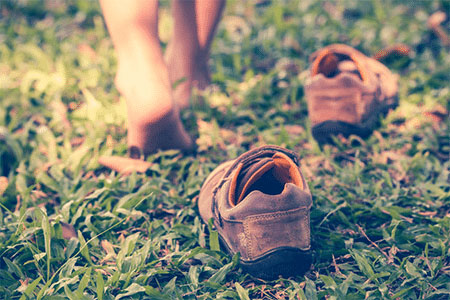
Is your toddler constantly pulling off their shoes, leaving you frustrated and wondering why? Are they protesting or just bored? My inbox is full of messages titled, ‘Help! My toddler won’t keep their shoes on!’ It’s a hot topic on parenting forums like Reddit and Quora, too. As a children’s shoe fitter with years of experience, I’m here to share proven strategies and specific shoe features that can help keep those little feet happily—and securely—inside their shoes.
One of toddlers’ favorite places to ditch their shoes is the car seat. A mom of two recently told me she’s lost three pairs of shoes because her son takes them off in the car—and possibly tosses them out the door while she’s buckling his little brother! Many other families share similar frustrations, often finding themselves hunting for missing shoes every time they get out of the car.
Is Your Child Trying to Tell You Something?
In my experience, toddlers who constantly take off their shoes are often trying to tell us something. Sometimes, their shoes are too tight and pinching their toes. Other times, it could be one of several reasons, including:
- Sensory sensitivities
- Shoes that don’t fit properly (too small or too narrow)
- Seeking attention
- Going through a normal phase
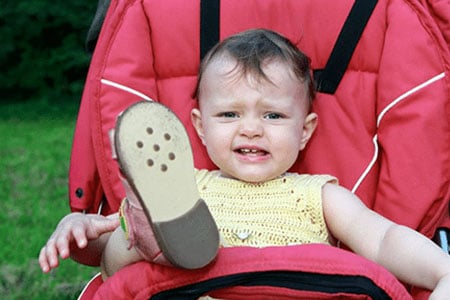
If you want your toddler to keep their shoes on, the secret lies in finding the perfect fit and choosing styles with secure fastenings that stay put, no matter how much wiggling or squirming happens!
Step One: Check if the Current Shoes Are Fitting Properly
Before buying new shoes for your toddler, it’s crucial to check their fit. Toddlers’ feet come in all shapes and sizes—narrow, medium, wide, or extra wide—and many still have baby fat that makes their feet wider. Do you know if your child has a high instep? Start by getting your toddler’s feet measured at a local shoe store to ensure the right size. If that’s not an option, try the free resource I created to help you measure your child’s exact shoe size from home.
Step Two: Choose Shoes Your Toddler Can’t Kick Off!
If you’re sure your toddler is wearing the right size, the next step is trying shoes they’ll have a harder time kicking off. Lace-up styles are often much tougher for little hands to remove. While options are limited, there are lace-up toddler shoes designed to fit various foot shapes, including wide and extra wide. Check out the list below for shoes that tend to stay put on even the wiggliest toddlers!
Top Shoe Picks for Toddlers Who Keep Taking Theirs Off
Every shoe listed below is designed to fit a variety of foot shapes, from medium to wide and even extra wide, ensuring a comfortable fit for every toddler. Disclosure: This post contains affiliate links, and we may earn a small commission at no extra cost to you.
1. Shoe Style Elliott by Stride Rite
Stride Rite’s lace-up high-top booties deliver a snug, secure fit—perfect for toddlers who love to kick off their shoes. Comfortable and stylish, they’re a top pick to keep little feet firmly in place.
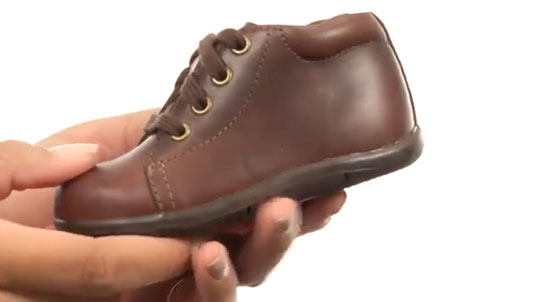
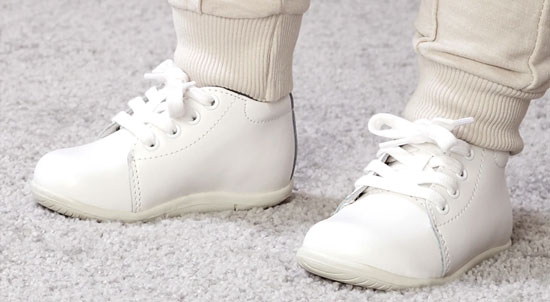
Key Features
- You can order the shoe SRT Elliot by Stride Rite on Amazon or Zappos
- Available in medium, wide, and extra wide widths
- I suggest getting this shoe a whole size larger than your toddler’s current foot size
2. Shoe Style 990v6 by New Balance
New Balance lace-up sneakers offer a reliable, snug fit that helps keep shoes on even the most wiggly toddlers. While parents love their quality and support, some find the price a bit steep.
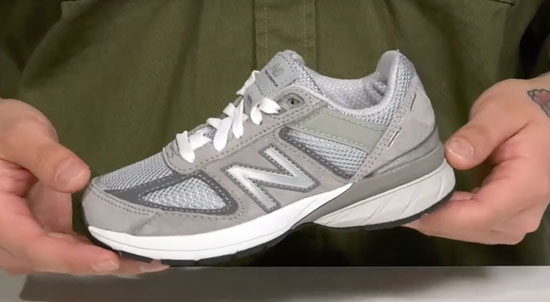
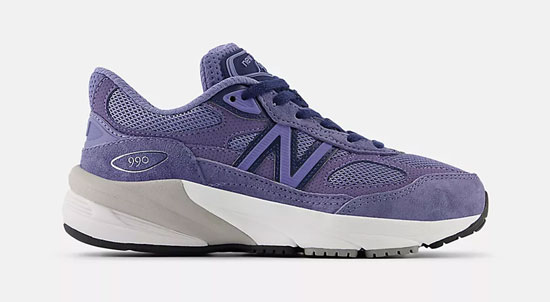
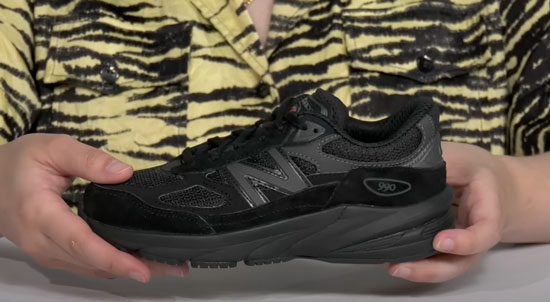
Key Features
- You can order the 990v6 with laces on the New Balance website, Amazon, or Zappos
- Available in medium, wide, and extra wide widths
- Also available in pink and navy blue
- I suggest getting this shoe a half size larger than your toddler’s current foot size
3. Samba by Adidas
A classic choice, the Samba by Adidas, remains a favorite for many. These lace-up toddler shoes provide a secure fit.
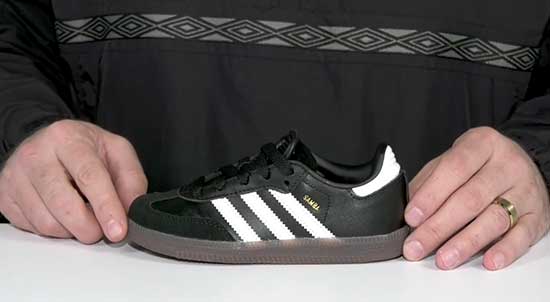
- Order the shoe style Samba Classic by Adidas on Amazon or Zappos
- Fits medium and wide feet
- 100% Leather
- Lace-Up closure
- Durable suede toe cap
- I suggest that you get this shoe a whole size larger than your child’s current foot size
4. Shoe Style 2002 by New Balance
The New Balance 2002 model is a fantastic, budget-friendly alternative to the 990v6—offering great support and a secure fit to help toddlers keep their shoes on.
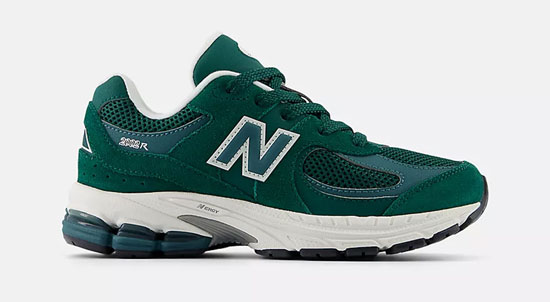
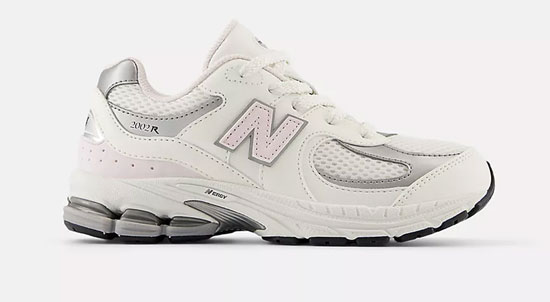
Key Features
- Order the shoe 2002 by New Balance on the New Balance website
- Available in medium and wide widths
- I suggest getting this shoe a whole size larger than your toddler’s current foot size
Are You Unsure About What Shoe Size You Should Order?
Not sure what size to order for your toddler? Check the description under each shoe for sizing tips that ensure the perfect growing room. Sometimes I recommend ordering a half or whole size up, but if a shoe runs long, sticking to your toddler’s current size might be best. These tips will help you pick shoes that fit comfortably now—and grow with your little one!
This Lacing Technique Makes Shoes Harder to Remove!
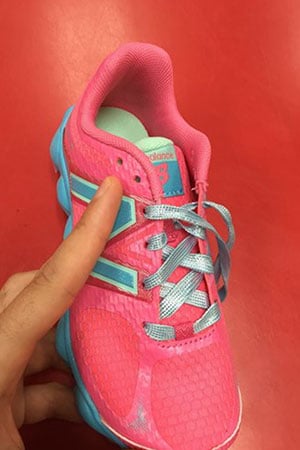
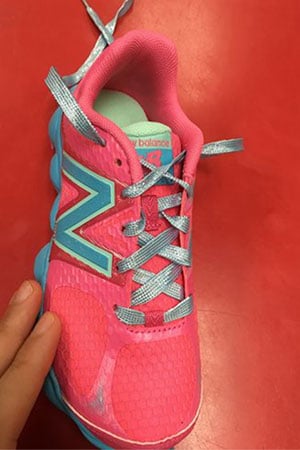
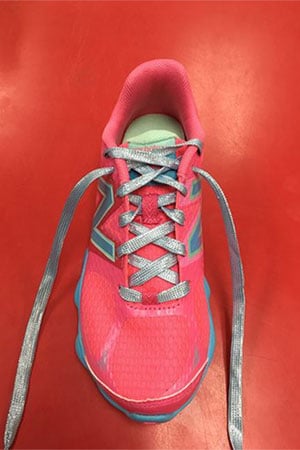
This clever lacing technique locks your toddler’s feet securely in place, making it much harder for them to slip out of their shoes.
Are High-Top Shoes Harder to Remove than Regular Sneakers?
It’s a common belief that high-top shoes are harder to remove, but this isn’t always the case. While they do provide extra support and coverage, the ease of removal often depends on the closure and fit. A well-fitted sneaker with a secure closure can be just as effective in staying on as a high-top shoe.
Could the Problem Be the Socks?
Some toddlers are extra sensitive to how fabrics feel against their skin, and I’ve seen many little ones refuse to wear socks altogether. In these cases, I often recommend trying seamless socks, which can make a world of difference in comfort.
Contact Me via Email or Through the Comments Section Below
If you’re still struggling to find the right shoes for your toddler, don’t hesitate to reach out for personalized recommendations. Contact me via email or through the comments section below. I’m here to help you find the perfect fit for your child’s unique needs.
